 W
WBaldomero Argente del Castillo (1877–1965) was a Spanish politician, sociologist, lawyer, economist, writer and journalist. He was a disseminator of the ideas of georgism in Spain. A member of the Liberal Party, he briefly served as Minister of Supply from 1918 to 1919.
 W
WSalem Goldworth Bland (1859–1950) was a Canadian Methodist theologian, Georgist, and one of Canada's most important Social Gospel thinkers.
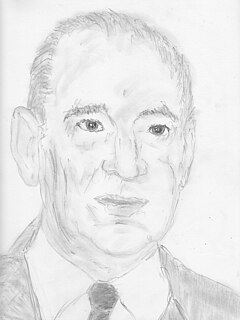 W
WFrank Chodorov was an American member of the Old Right, a group of libertarian thinkers who were non-interventionist in foreign policy and opposed to both the American entry into World War II and the New Deal. He was called by Ralph Raico "the last of the Old Right greats."
 W
WErnest Howard Crosby was an American reformer, georgist, and author.
 W
WPeter Francis Curran was a British trade unionist and politician.
 W
WGeorges Darien was a French writer associated with anarchism and an outspoken advocate of Georgism.
 W
WClarence Seward Darrow was an American lawyer who became famous in the early 20th century for his involvement in the Leopold and Loeb murder trial and the Scopes "Monkey" Trial. He was a leading member of the American Civil Liberties Union, and a prominent advocate for Georgist economic reform.
 W
WNellie Fassett was an American feminist, political organizer, and suffragette during the 1890s through 1920s in New York City.
 W
WJoseph Fels was an American soap manufacturer, millionaire, Georgist and philanthropist.
 W
WHenry George Jr. was a United States Representative from New York and the son of the American political economist Henry George (1839–1897).
 W
WJohann Silvio Gesell was a German-Argentine merchant, theoretical economist, social activist, Georgist, anarchist, libertarian socialist, and founder of Freiwirtschaft. In 1900 he founded the magazine Geld-und Bodenreform, but it soon closed for financial reasons. During one of his stays in Argentina, where he lived in a vegetarian commune, Gesell started the magazine Der Physiokrat together with Georg Blumenthal. In 1914, it closed due to censorship.
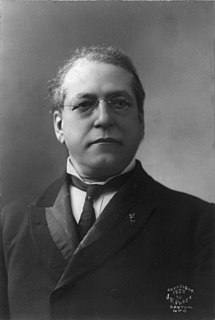 W
WSamuel Gompers was a British-born American cigar maker, labor union leader and a key figure in American labor history. Gompers founded the American Federation of Labor (AFL), and served as the organization's president from 1886 to 1894, and from 1895 until his death in 1924. He promoted harmony among the different craft unions that comprised the AFL, trying to minimize jurisdictional battles. He promoted through organization and collective bargaining, to secure shorter hours and higher wages, the first essential steps, he believed, to emancipating labor. He also encouraged the AFL to take political action to "elect their friends" and "defeat their enemies". He mostly supported Democrats, but sometimes Republicans. He strongly opposed Socialists, and he was particularly opposed to immigrants from China, spreading racist arguments about their supposed inferiority. During World War I, Gompers and the AFL openly supported the war effort, attempting to avert strikes and boost morale while raising wage rates and expanding membership.
 W
WWilliam Crawford Gorgas KCMG was a United States Army physician and 22nd Surgeon General of the U.S. Army (1914–1918). He is best known for his work in Florida, Havana and at the Panama Canal in abating the transmission of yellow fever and malaria by controlling the mosquitoes that carry these diseases. At the time, his strategy was greeted with considerable skepticism and opposition to such hygiene measures. However, the measures he put into practice as the head of the Panama Canal Zone Sanitation Commission saved thousands of lives and contributed to the success of the Canal's construction.
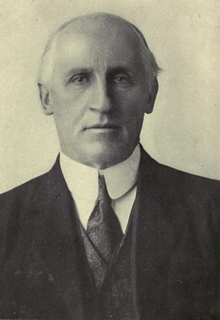 W
WBolton Hall was an American lawyer, author, and Georgist activist who worked on behalf of the poor and starting the back-to-the-land movement in the United States at the beginning of the 20th century.
 W
WHubert Henry Harrison was a West Indian-American writer, orator, educator, critic, race and class conscious political activist, and radical internationalist based in Harlem, New York. He was described by activist A. Philip Randolph as "the father of Harlem radicalism" and by the historian Joel Augustus Rogers as "the foremost Afro-American intellect of his time." John G. Jackson of American Atheists described him as "The Black Socrates".
 W
WAmi Mali Hicks (1867–1954) was an American feminist, writer, and organizer. She wrote books on art instruction and criticism. Hicks was a longtime administrator for Free Acres, an independent, collectivized community in New Jersey. She worked with the Women’s Political Union and was a member of Heterodoxy, two radical organizations that challenged some of the more placid activism of women’s movements and suffragists.
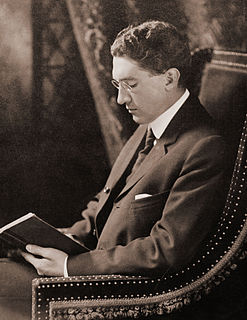 W
WJohn Haynes Holmes was a prominent Unitarian minister, pacifist, and co-founder of the NAACP and the ACLU. He is noted for his anti-war activism.
 W
WWilliam Lane was an English-born journalist, author, advocate of Australian labour politics and a utopian socialist ideologue.
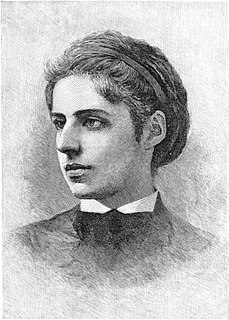 W
WEmma Lazarus was an American author of poetry, prose, and translations, as well as an activist for Jewish causes.
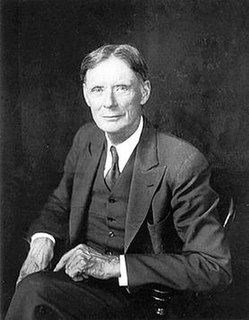 W
WJohn C. Lincoln was an American inventor, entrepreneur, philanthropist and in 1924, the Vice-Presidential candidate under the Commonwealth Land Party ticket. He held 55 patents on several electrical devices, founded the Lincoln Electric Co., invested in the construction of the Camelback Inn, presided over the Bagdad Mine and funded two hospitals in Phoenix, one which bears his name.
 W
WElizabeth J. Phillips was an American game designer, writer, feminist, and Georgist. She invented The Landlord's Game, the precursor to Monopoly, to illustrate teachings of the progressive era economist Henry George.
 W
WEdward McGlynn, American Catholic priest and social reformer, was born in New York City of Irish parents. He was controversial in Catholic circles for his acceptance of public schools. He actively promoted the political goals of Henry George and the "Single Tax" movement; he campaigned for George who ran for mayor in 1886. He was censured and excommunicated from 1887 until 1892 on the charges of disobedience and suspicion of socialist leanings, due to his support of Henry George. Conservative Catholic leaders were outraged by his libertarianism.
 W
WEdward McHugh was an Irish Georgist, trade unionist, Labour activist and social reformer. He spent a great deal of his lifetime engaged in the struggle for social reform not only in Great Britain and Ireland, but also further afield, including spells in America and the Antipodes.
 W
WHenry Churchill de Mille was an American businessman and Georgist, and the father of film pioneers Cecil B. de Mille and William C. de Mille, and the paternal grandfather of the dancer and choreographer Agnes de Mille.
 W
WJames Ferdinand Morton Jr. was an anarchist writer and political activist of the 1900s through the 1920s especially on the topics of the single tax system, racism, and advocacy for women. After about 1920 he was more known as a member of the Baháʼí Faith, a notable museum curator, an esperantist and a close friend of H. P. Lovecraft.
 W
WAlbert Jay Nock was an American libertarian author, editor first of The Freeman and then The Nation, educational theorist, Georgist, and social critic of the early and middle 20th century. He was an outspoken opponent of the New Deal, and served as a fundamental inspiration for the modern libertarian and conservative movements, cited as an influence by William F. Buckley Jr. He was one of the first Americans to self-identify as "libertarian". His best-known books are Memoirs of a Superfluous Man and Our Enemy, the State.
 W
WJoseph Jay "J. J." Pastoriza was a printer, real estate investor, and politician in Houston, Texas. He served both as Houston's Tax Commissioner and Mayor. Pastoriza was the first Hispanic mayor of the city of Houston. Pastoriza was orphaned and adopted as a young child in Houston. He started working in the printing business at about age twenty before establishing his own stationery and print shop.
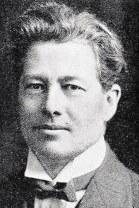 W
WJohn Thomas Paul was a New Zealand compositor, trade unionist, politician, editor, journalist and censor.
 W
WGeorge Foster Peabody was an American banker and philanthropist.
 W
WWilliam Lightfoot Price was an American architect, a pioneer in the use of reinforced concrete, and a founder of the utopian communities of Arden, Delaware and Rose Valley, Pennsylvania.
 W
WGeorge Francis Stephens (1859–1935), known as Frank Stephens, was an American sculptor, political activist and co-founder of a utopian single-tax community in Arden, Delaware.
 W
WCount Lev Nikolayevich Tolstoy, usually referred to in English as Leo Tolstoy, was a Russian writer who is regarded as one of the greatest authors of all time. He received nominations for the Nobel Prize in Literature every year from 1902 to 1906 and for the Nobel Peace Prize in 1901, 1902, and 1909. That he never won is a major controversy.
 W
WFrederick Fiske Warren was a successful paper manufacturer, fine arts denizen, United States tennis champion of 1893, and major supporter of Henry George's single tax system which he helped develop in Harvard, Massachusetts, United States, in the 1930s. Fiske Warren established Georgist single-tax colonies and a social experiment in Andorra to disprove Malthus's population theory.
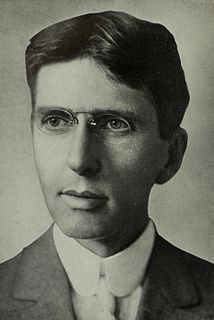 W
WBrand Whitlock was an American journalist, attorney, politician, Georgist, four-time mayor of Toledo, Ohio elected on the Independent ticket; ambassador to Belgium, and author of numerous articles and books, both novels and non-fiction.
 W
WJackson Stitt Wilson was a Canadian-born American politician. He was a Christian socialist and suffragist, and held Georgist economic views. A member of the Socialist Party of America, Wilson was the mayor of Berkeley, California from 1911 to 1913. He ran for Congress on a socialist platform, receiving 40 percent of the votes cast, but was defeated by the incumbent Republican Congressman.
 W
WCharles Erskine Scott Wood or C.E.S. Wood was an American author, civil liberties advocate, artist, soldier, attorney, and Georgist. He is best known as the author of the 1927 satirical bestseller, Heavenly Discourse.